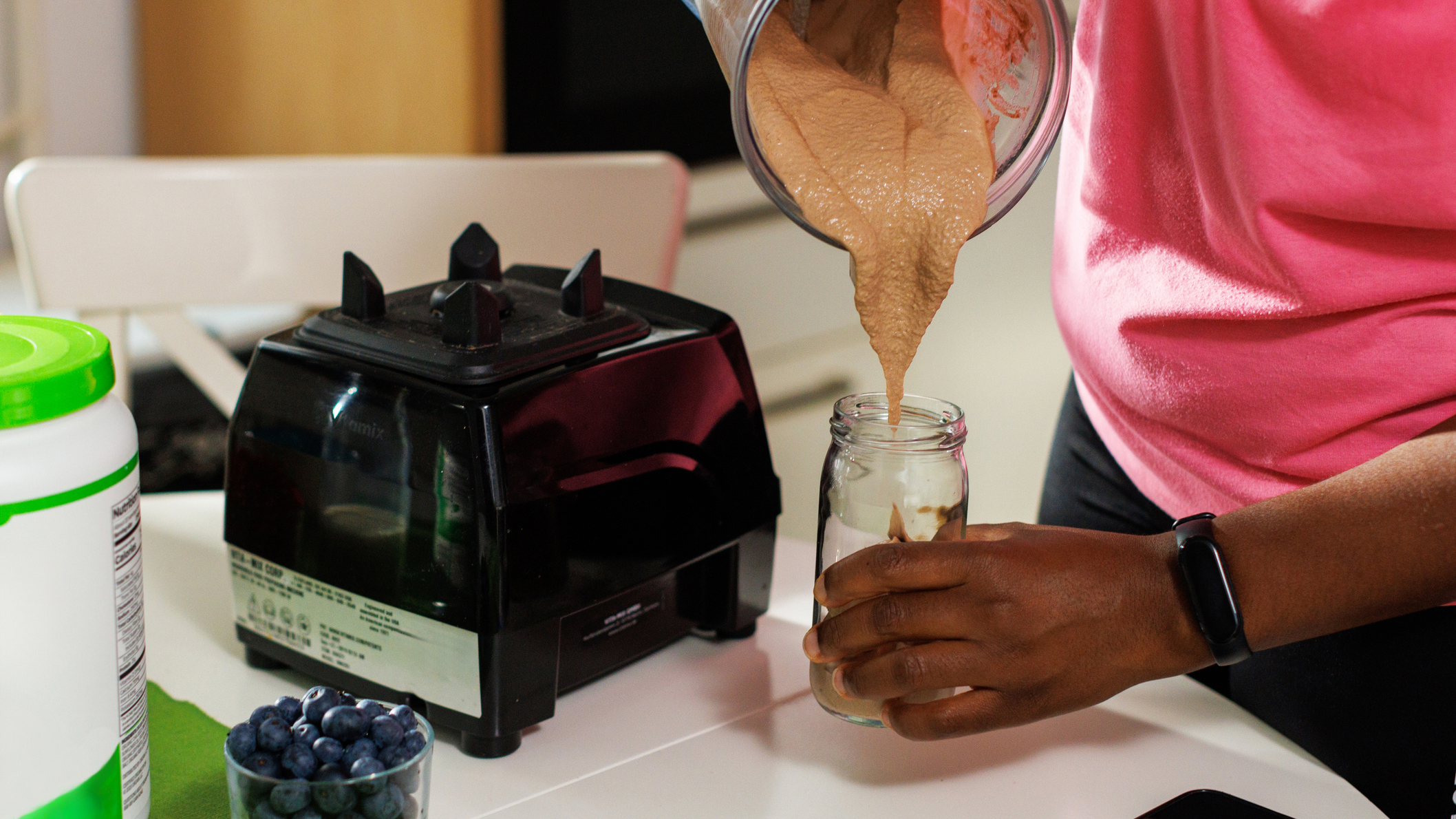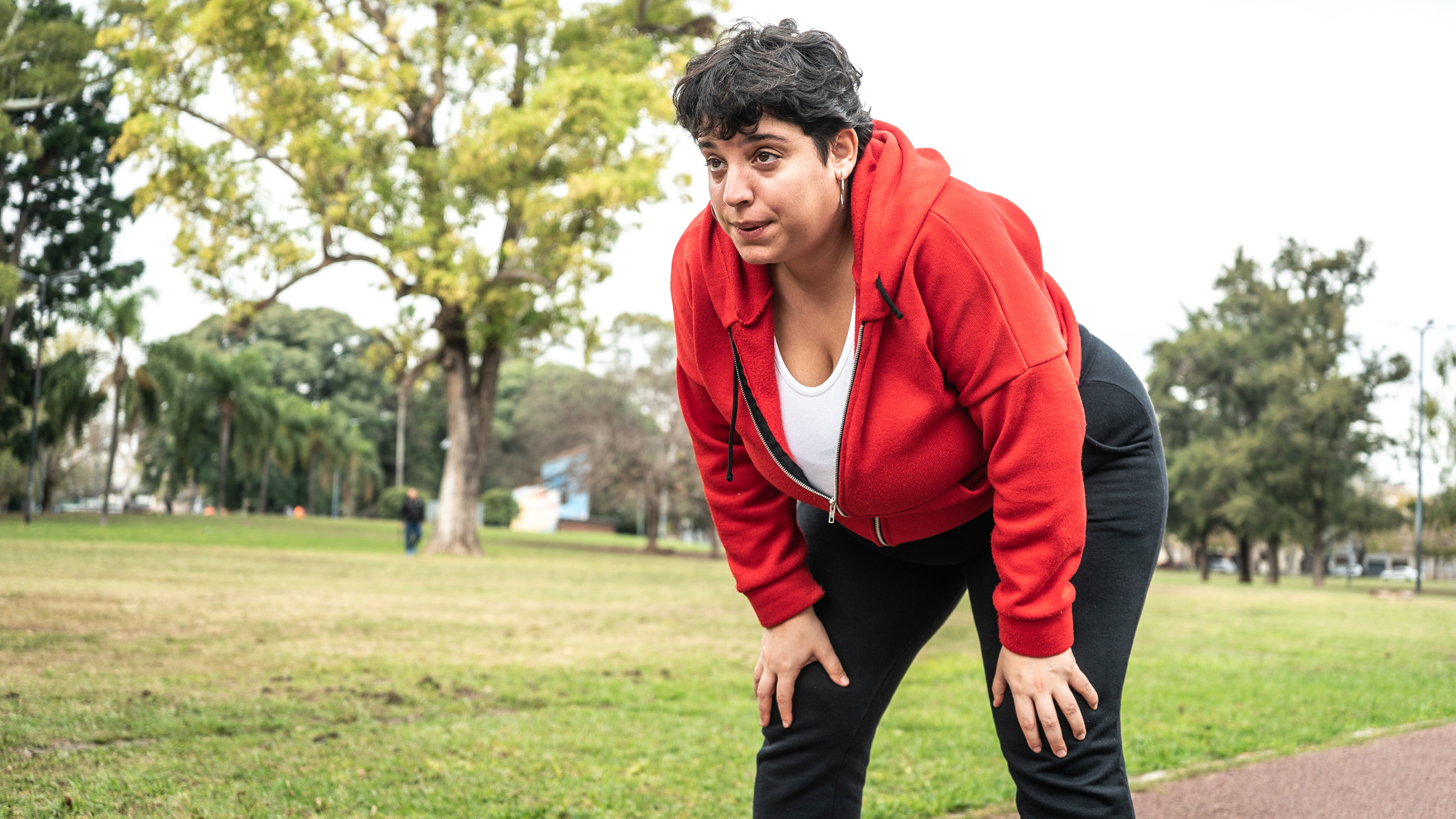Does protein powder make you gain weight? A dietitian explains
Yes, protein powder can make you gain weight—but it can also help with weight loss if you use it in the right way

Catherine Renton

Protein is an essential macronutrient we all need to survive, but does protein powder make you gain weight? It can do, if you’re over-consuming it while unwittingly eating too many calories, says registered dietitian Kylie Bensley.
"Overconsumption of calories in any form—protein, fat, or carbohydrates—can cause weight gain,” warns Bensley.
However, Bensley points out that protein powder alone isn’t going to increase the numbers on your scale. Increasing your protein intake can actually increase your satiety (how full you feel) and help you eat less of other foods, which could lead to weight loss. Here’s how it works.

Kylie Bensley is a highly regarded clinical dietitian with a wealth of expertise in nutrition. With an unwavering dedication to patient care, Bensley has spent over a decade working in renowned medical facilities in Boston and Cambridge, MA. Throughout her extensive career, she has provided invaluable guidance to patients recovering from surgery, establishing herself as a leading and trusted authority in the field.
Does protein powder make you gain weight?
Protein is one of three macronutrients our bodies need to function; the other two are carbohydrates and fat. When we eat more of these macronutrients than we need, our body converts the extra energy into fat tissue, which is stored in the body for later use.
The average adult needs 0.8 grams of protein a day for every kilogram they weigh. The amount of protein and calories you need depends on your activity levels and body composition, but most of us consume well above this recommendation according to America’s Agricultural Research Service.
There’s a risk that by adding unnecessary protein powder to your diet, you could simply increase your calorie intake, which Bensley explains could lead to weight gain and elevated blood sugars.
However, the relationship between protein and weight management is complex. Consuming protein can boost the hormones responsible for making you feel full and suppress the hormones that make you feel hungry, so increasing your intake could help you avoid hunger pangs. Protein also requires more energy to digest than other foods, so you could burn more calories by simply switching out some of the carbs and fats on your plate for protein.
Start your week with achievable workout ideas, health tips and wellbeing advice in your inbox.
Bensley says the bottom line is that you need a calorie deficit to lose weight, and it doesn’t matter whether this is achieved by eating less fats, carbs, or protein.

Can protein powders help you lose weight?
One of the many benefits of protein is that it can help you feel fuller for longer. Switching out fats and carbs for protein could also help you burn more calories, as the macronutrient has a higher energy demand for digestion.
There’s also some speculation that a high protein diet could encourage your body to burn fat. Research published in the Nutritional Metabolic journal found that consuming a whey protein supplement increased fat loss in obese people when combined with a calorie-reduced diet.
But Bensley cautions that protein powders contain a lot of additives, which can impact how effective they are for weight loss. If you’re trying to lose weight, it’s a good idea to check the calorie, sugar and fat content in your protein powder.
“If weight loss is a goal, a lower calorie protein powder is ideal,” says Bensley. “For example, whey isolate is lower in calories than whey concentrate.” For more details, see our guide to the best protein powder for weight loss.
What are the benefits of taking protein powders?
You need to consume adequate amounts of protein to build and maintain muscle. How much protein you need to build muscle depends on your activity levels, but if you’re not getting enough supplementing your intake with a protein powder can help you hit your goals.
Remember: you also need to do sufficient strength-training exercises to make gains. A 2015 review in the Sports Medicine journal found that athletes saw muscle growth when supplementing with protein powders, but untrained individuals saw little muscle-building benefit from supplementation.
As discussed above, eating protein can help you lose weight, as it helps you feel fuller for longer and burns a higher amount of calories during digestion than fat or carbs. A 2017 review from the Journal of the American College of Nutrition also found that supplementing with whey protein can reduce body weight and total fat mass in people who are overweight or obese.

Drawbacks of protein powders
Not everyone will suffer from protein powder side effects, but some people could experience digestive issues.
“Excessive protein intake in general can result in digestive distress such as increased bowel movements, nausea, bloating, diarrhea, and excess flatulence," says Bensley. If you have a lactose intolerance, you’re likely to find that a lot of dairy-based products will disagree with you, too.
You might not know exactly what’s in the tub when you buy protein powder, either. As a supplement, the Food and Drug Administration (FDA) leaves it up to manufacturers to evaluate the safety and labeling of products. So, there's no way to know if a protein powder contains what manufacturers claim.
Before you start drinking shakes, try getting extra protein through a snack or meal. Protein that you get from food sources like meat and pulses will come with a serving of vitamins and minerals that you might not get from processed powders. For most people, it's easy to get all the protein they need from their diet. The exceptions are athletes and people aged 50 and above with reduced appetites.
If you turn to shakes, read nutrition labels carefully and avoid those high in sugar, cholesterol, or saturated fat.
Does protein powder make you stronger?
Protein is essential for muscle growth and a 2018 analysis published in the British Journal of Sports Medicine supports the use of protein supplements for this purpose. In addition, the research suggests that protein supplements significantly improve muscle size and strength in healthy adults who perform resistance exercise training, such as lifting weights.
Looking for more? Check out our feature on muscle recovery after workouts: what to do. Alternatively, if you want to give protein powder a go, here’s how to use protein powder to lose weight or gain muscle.
Maddy Biddulph is a journalist specializing in fitness, health and wellbeing content, with 26 years in consumer media working as a writer and editor for some of the bestselling newspapers, magazines and websites in the US and UK, including Marie Claire, The Sunday Times and Women’s Health UK.
She is a CIMPSA-certified PT and works one-on-one with clients, as well as running Circuits Club classes which mixes cardio and strength training and chair-based exercise classes for seniors.


